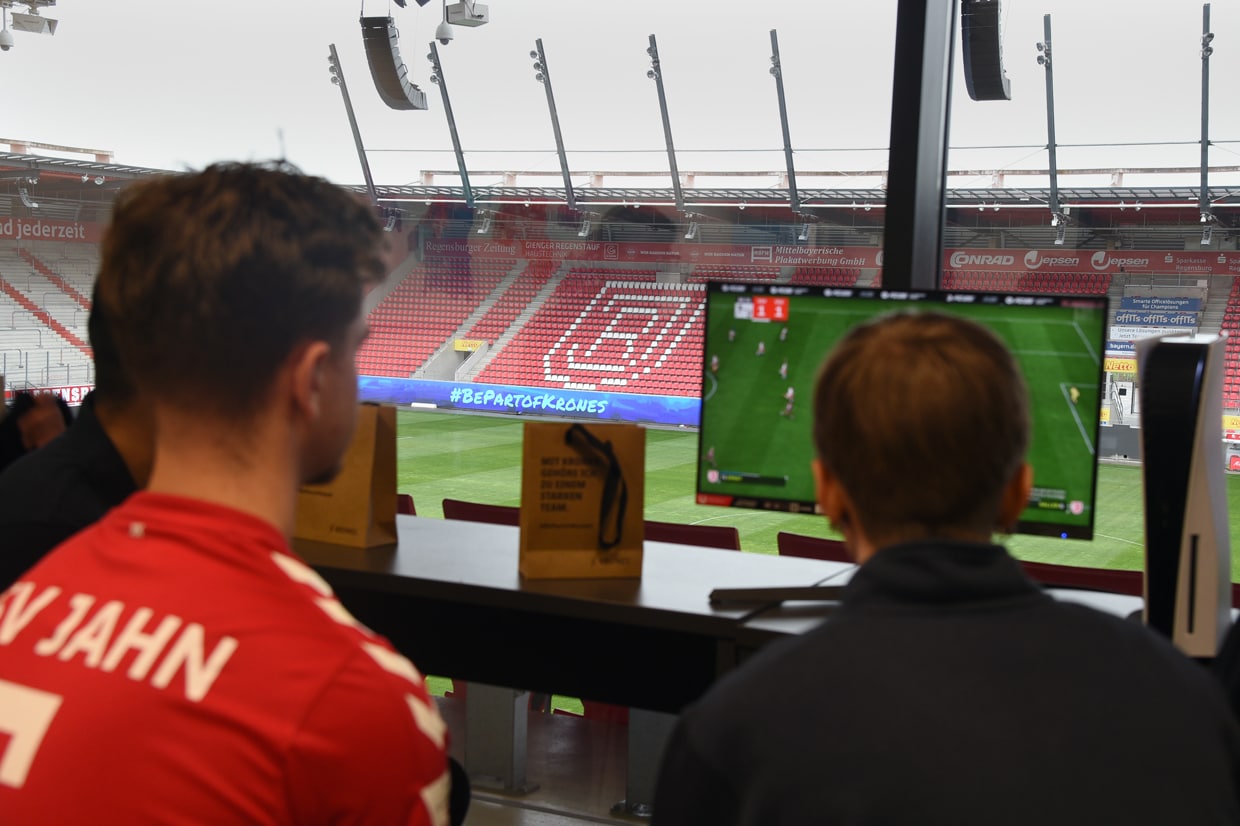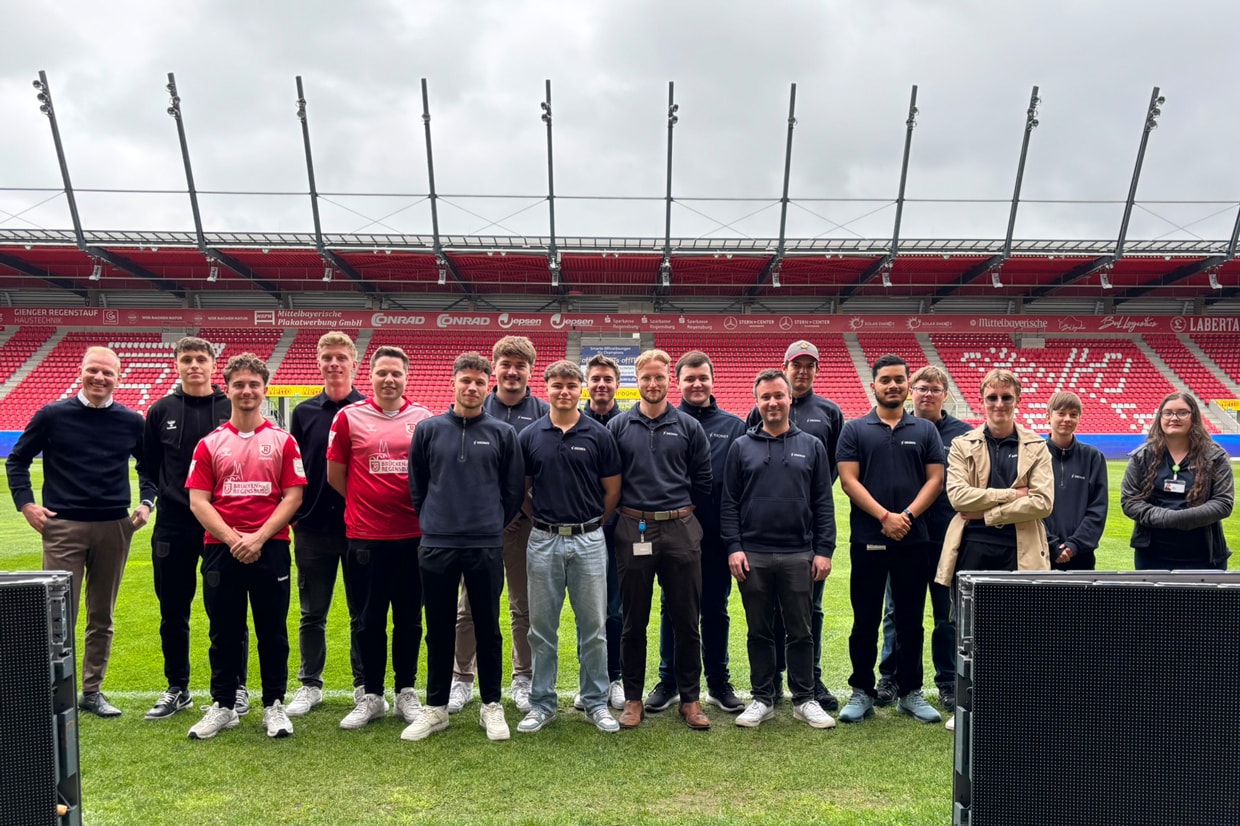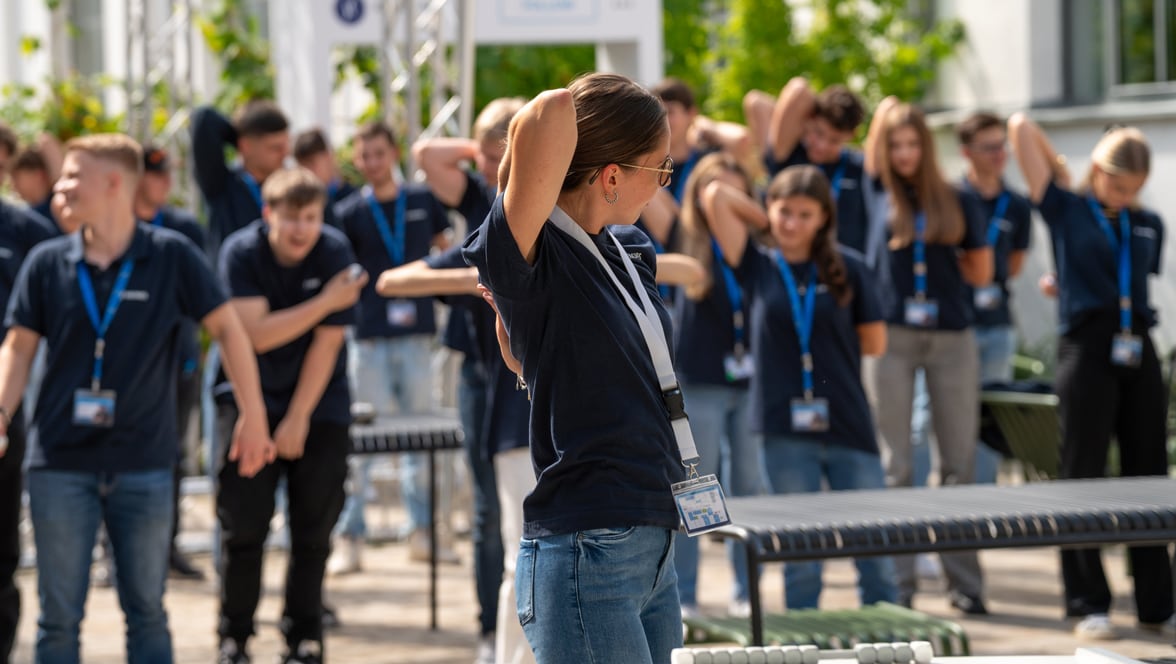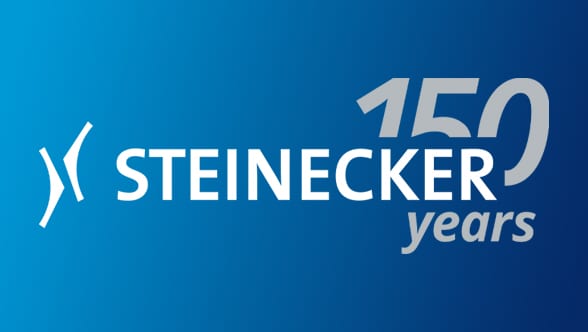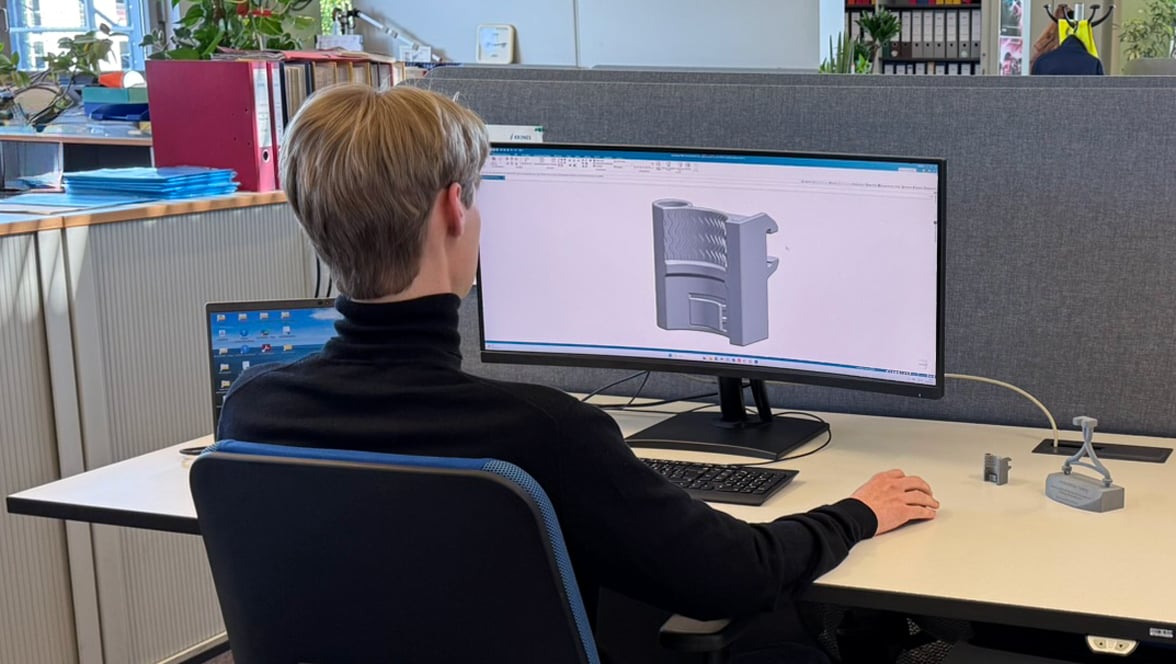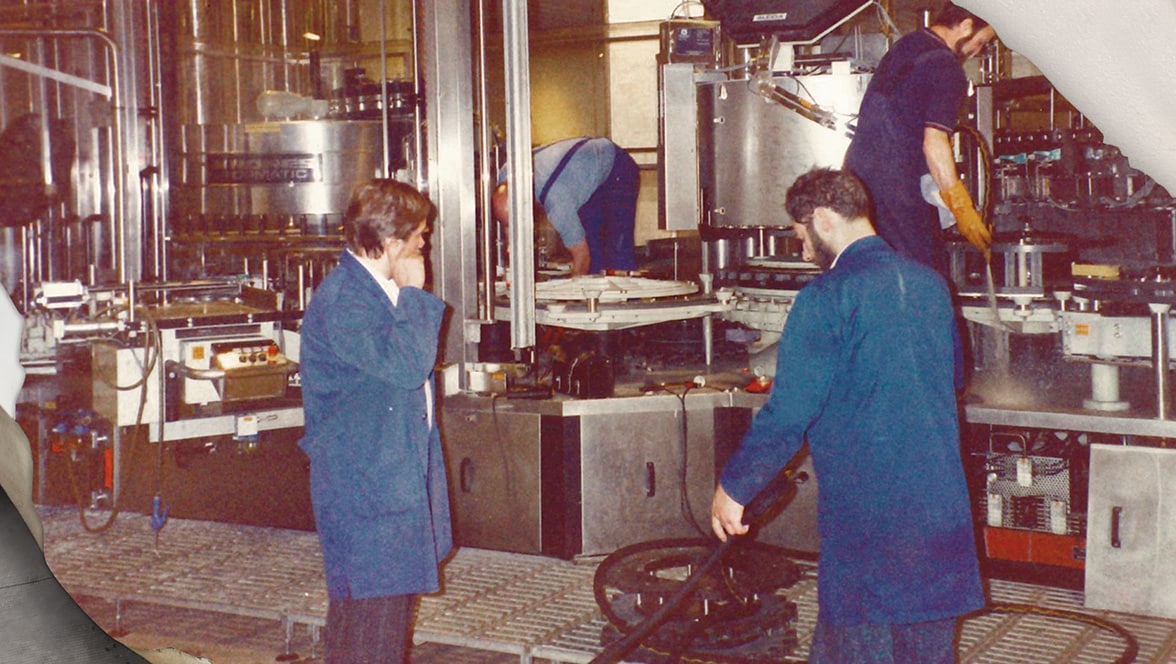It’s 4.00 in the afternoon on Monday. For apprentice Dario, another working day is ending. But he won't be leaving the grounds for a long time yet. Instead of going home, he heads towards the training centre. Once there, he opens an inconspicuous door to a room featuring computers alongside the pneumatic equipment. And not just anyones: These are high-tech terminals boasting a strong Intel Core i9 and a powerful Nvidia RTX 4080. In front of most of the computers are high-end keyboards and mice as well as PS5 controllers. “This is our e-sports room,” explains Dario Pischel proudly. In the meantime, other apprentices are coming in through the door, sitting down at the tables and booting up their computers. You see, they all have something in common: They are members of the Krones e-sports team.
It may seem unusual to hear tap-tapping on keyboards and see goals being scored on the monitor at Krones, but for 35 apprentices that’s been a part of their everyday after-work routine for the last year or so. That's because they’re members of the newly formed e-sports team – and proof that training and gaming go perfectly together.
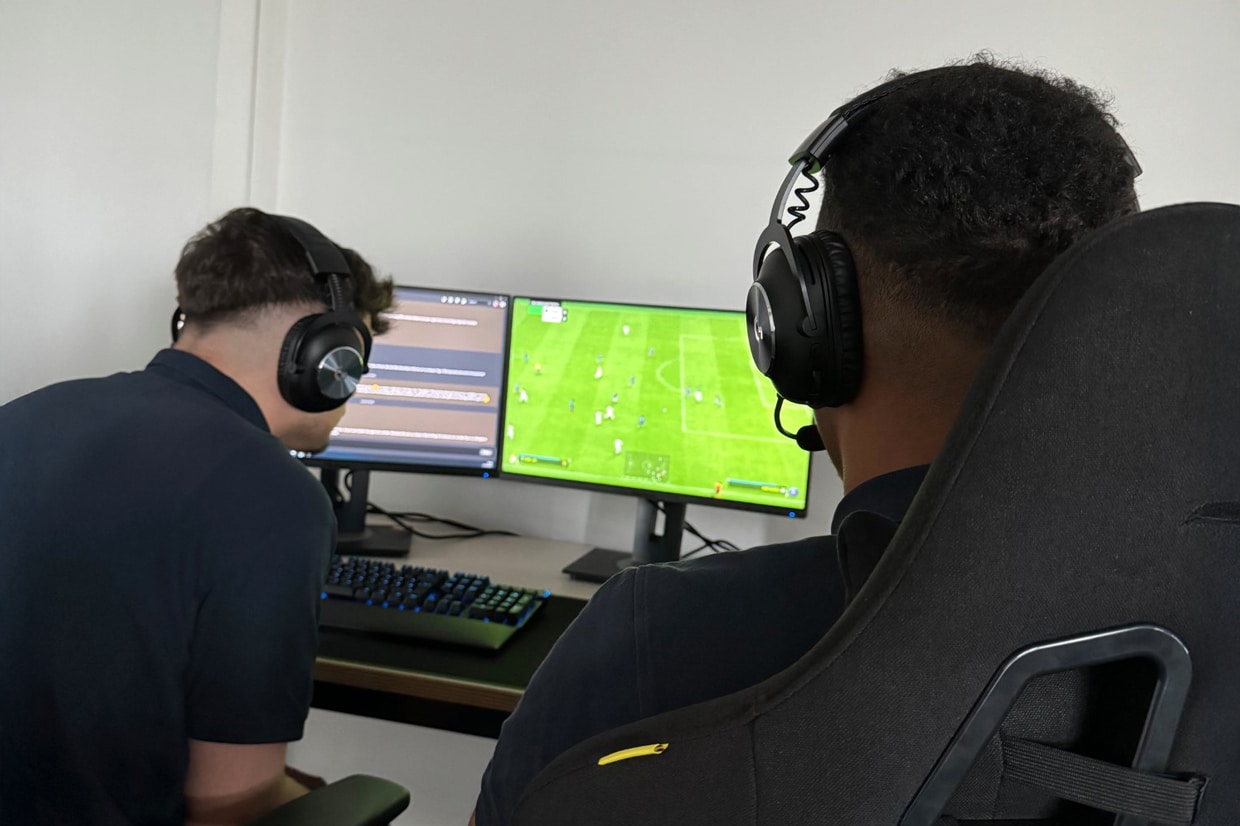
Glowing screens instead of floodlights
What used to be considered a niche hobby or “fringe sport” has now become a global movement comprising a well-networked and steadily growing online community, particularly in the 15 to 35-year-old age group. With a large number of professional teams and events that pack out halls with tens of thousands of visitors and reach millions more on devices, e-sports has become firmly established in Germany.
- eFootball: FIFA 21 is the most-viewed of the FIFA/FC series of games published by Electronic Arts on the streaming platform Twitch. Viewers spent a little over 61 million hours watching the pixel ball speed across the digital grass in November 2020.
- Tournaments: The League of Legends World Championship is one of the best-known e-sports tournaments. In 2024, more than 6.5 million viewers across the world followed the event live, both at the O2 Arena in London and through the streaming platforms Twitch and YouTube. The total prize money distributed to the participating teams exceeded 2,250,000 US dollars.
- Professional players: The e-sports sector also has professional players. Earning an outstanding four million US dollars, KuroKy from Germany occupies top spot among the highest-paid pro gamers. Football clubs such as Schalke 04 and Bayern Munich are also attracting players, with many of them already running their own e-sports team offering salaries of up to 10,000 euros.
With courage, clicks and clarity
Why are companies like Krones setting up their own teams? Dario has an answer: “I’ve been engaging with e-sports for quite a long time already. The same applies for my friends here at Krones, who also really enjoy playing. Then we came up with the idea of forming our own e-sports team. After consulting with the Executive Board, the Works Council and the training managers, we then turned the dream into reality. To make absolutely sure this was something people wanted, though, we conducted a survey that came out in favour of starting a team.”
While there are certainly benefits for the apprentices, who get the chance to pursue their hobby together, there are also good reasons for Krones as a company to support the young team. “It’s important for us to think less in terms of plants and instead to emphasise the ‘we’ in our training, particularly with regard to team and organisational skills, but also personal skills. It should also improve communication and the ability to concentrate, because you have to be and stay focused, concentrated and receptive when gaming. That sort of thing will help us in our working life as well,” explains Björn Brendemühl, Head of Industrial Training at Krones. He’s not just thinking about the current apprentices, however, but also those who might be considering applying for an apprenticeship at Krones: “But we also hope that our recruitment target group – school students – will regard Krones as an attractive, modern employer. We want to ensure that they are incentivised to apply for a job here. This helps us present ourselves as a strong brand that is innovative and daring and understands its target group,” Björn Brendemühl adds.
We want to think less in terms of plants and instead to emphasise the ‘we’ in our training, particularly with regard to team and organisational skills, but also personal skills.
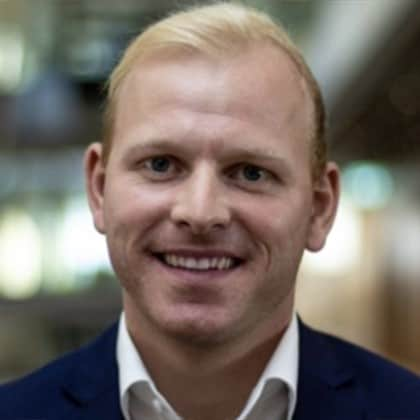 Björn BrendemühlHead of Industrial Training
Björn BrendemühlHead of Industrial Training
A clear strategy
But not all gaming is the same. The team around Dario gave careful consideration to what needed to be done when setting up an in-house team. In addition to separate articles of association, something else is new: “We thought about what sort of structure to have. There are three apprentice leads, who run the group. They take care of the organisation and the framework conditions and make sure that our articles of association are implemented and observed. Other apprentices take responsibility for development activities or communication, while still others supervise the various games directly,” explains Dario Pischel. Björn Brendemühl adds: “We also introduced the E-Committee, which consists of the training management, a trainer, the Works Council and the leads. It is responsible for changes to the articles of association and adjustments to the strategy, and it means that everyone involved can discuss things on an equal footing.”
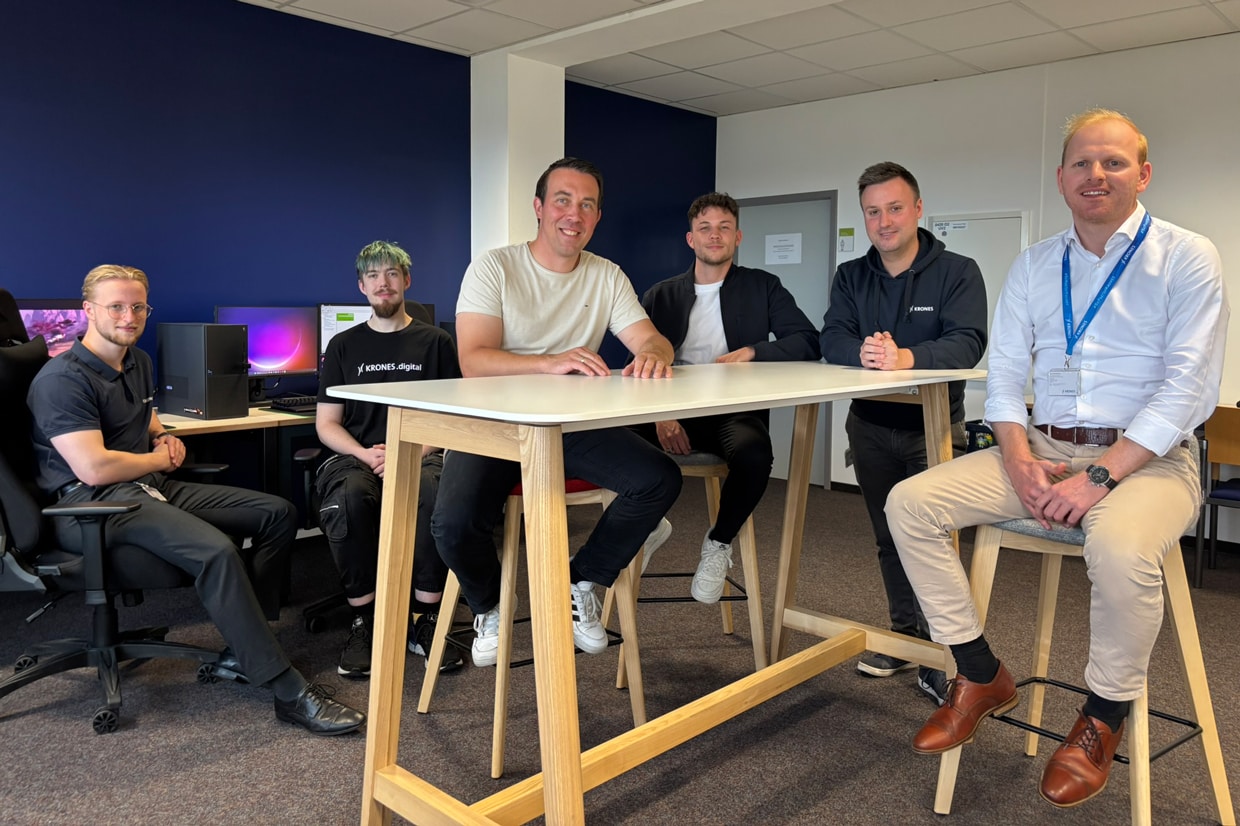
These articles of association also set out, for example, which games will be played and when. They state, for instance, that training can only take place outside working hours – events such as tournaments, on the other hand, while usually held after work, can also be run during working hours for the purposes of apprenticeship marketing. First-person shooters and games that glorify violence are not included in the selection of games of course. Who is actually allowed to play is also anchored in the articles: all apprentices at the four German plants. This is to help the apprentices get to know those they don’t come across every day. You do not need to be particularly good at gaming to be able to join the team, by the way: “Anyone can get involved. Only in the event of gross misconduct – such as installing harmful software – can someone be excluded,” explains Andreas Gebhardt, a trainer at Krones and a member of the E-Committee.
A wide and varied catalogue of games
Prevention is the most important thing
“One issue that the project has addressed from the start is the potential for addiction,” says Björn Brendemühl. And rightly so: Gaming is a popular hobby for many young people – but one that also has its dangers (see box).
The risk of gaming disorder
A study by DAK-Gesundheit, one of Germany’s biggest health insurers, reveals that a huge 72 percent of 12 to 17-year-olds say they play regularly on the computer. Some 15.4 percent of these are at risk of addition, with 4.3 percent already affected. The eleventh revision of the “International Classification of Diseases for Mortality and Morbidity Statistics”, or ICD-11 for short, defines gaming disorder as an enduring or repeated pattern of gaming behaviour that can take place both online and offline. Typical symptoms are impaired control over gaming, increasing priority given to gaming over other activities to the extent that it takes precedence over other interests and daily activities, and the continuation of gaming despite the occurrence of negative consequences. This can result in impairment to a person's functioning in personal, family, social, educational and occupational areas.
“That is precisely why education and support are part and parcel of our concept – not just digitally, but in real life as well.” These are the words of Antonia Meier from Krones Health Management, who oversees the delivery of the prevention programme. Even before the gaming computer can be booted up for the first time, all new members of the team must attend a 90-minute seminar – a practical, interactive and cross-site class run by Health Management. “We think it’s important to be open about understanding the risks and opportunities associated with e-sports,” Antonia Meier explains. “Gaming can be enriching, but only if there is balance. We want our apprentices to be prepared – not uncritical, but aware and conscious of the characteristics and progression of a gaming addiction.” The responsible committee also sets a good example: It goes through the same training, meets regularly for discussions and documents playing time in order to protect the rest of the team members.
Gaming together, growing together
The training is paying off, with the e-sports team now also entering its first tournaments. In addition to the internal Krones eCup, a tournament held over a number of months with five different games, there are also regular contests with external partners as well. The team has, for instance, already played in the company tournament organised by the Bavarian Football Association (BFV) – finishing in second place straight away. One particular highlight was the collaboration recently started with the e-sports team of professional football club SSV Jahn Regensburg. Both sides met up in the Jahnstadion for a round of talks addressing issues such as time management, preventing gaming addiction and communication. This was followed by a tour of the stadium and a friendly game of EA FC.
And here’s what is happening next: In June there will be a friendly match against Jahn, and the „Welcome Week“ for new apprentices in September will feature the team presenting its gaming options. The goal is clear: to strengthen team spirit, take responsibility – and have fun together.

